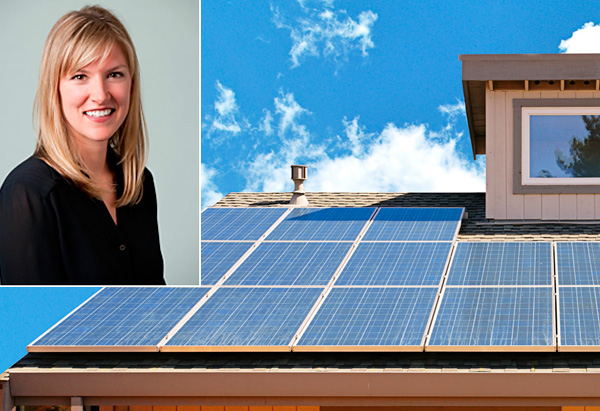A Young Entrepreneur Brings Solar Power to the Masses
For Lynn Jurich, living in polluted Shanghai was an environmental wake-up call. Now she's helping bring clean power to its inhabitants with her ambitious new company.

Photo: Courtesy of SunRun and Francis Fine Art Photography
In 2006, after her first year at Stanford Business School, Lynn Jurich accepted an internship at a bank in Shanghai. "I remember wearing a silver necklace to work," she says, "and by the time I got to the office, it was tarnished." The Chinese megacity's abysmal air quality was shocking to Jurich—who grew up in the Pacific Northwest—and for the first time in her life, she started seriously thinking about environmental issues. Before her plane even cleared the Shanghai smog at summer's end, she'd decided to abandon finance in favor of something more entrepreneurial—and, she hoped, more important.
Back at Stanford, a classmate, Ed Fenster, was looking to start a company that would put a dent in the pollution caused by coal-fired power plants (which illuminate nearly half of U.S. households). Fenster and Jurich envisioned buying and installing solar panels—which can cost $35,000—for homeowners, and offering monthly rates equal to or below the home's previous utility bills, thereby making solar a "no-brainer." They'd make the money back with 20-year fixed-rate contracts.
Jurich and Fenster knew they were onto something, but they had to raise money to buy the panels—just as the country was sinking into a recession. "No one wanted to take the risk of investing in revolutionary ideas," Jurich says. Undeterred, the pair dipped into their savings to start SunRun; they eventually raised about $700 million in additional funding.
Today SunRun helps power 12,000 homes—offsetting, over 20 years, the carbon generated by burning 1.9 trillion pounds of coal—in nine states, including California and New Jersey (visit sunrunhome.com to see if the service is available near you). But for Jurich, who thinks like a CEO, not an environmentalist, that's not enough. "Our goal is to become the largest provider of energy for American families," she says. "If we don't power your home yet, we will."
How to be More Eco-Friendly
Back at Stanford, a classmate, Ed Fenster, was looking to start a company that would put a dent in the pollution caused by coal-fired power plants (which illuminate nearly half of U.S. households). Fenster and Jurich envisioned buying and installing solar panels—which can cost $35,000—for homeowners, and offering monthly rates equal to or below the home's previous utility bills, thereby making solar a "no-brainer." They'd make the money back with 20-year fixed-rate contracts.
Jurich and Fenster knew they were onto something, but they had to raise money to buy the panels—just as the country was sinking into a recession. "No one wanted to take the risk of investing in revolutionary ideas," Jurich says. Undeterred, the pair dipped into their savings to start SunRun; they eventually raised about $700 million in additional funding.
Today SunRun helps power 12,000 homes—offsetting, over 20 years, the carbon generated by burning 1.9 trillion pounds of coal—in nine states, including California and New Jersey (visit sunrunhome.com to see if the service is available near you). But for Jurich, who thinks like a CEO, not an environmentalist, that's not enough. "Our goal is to become the largest provider of energy for American families," she says. "If we don't power your home yet, we will."
How to be More Eco-Friendly



